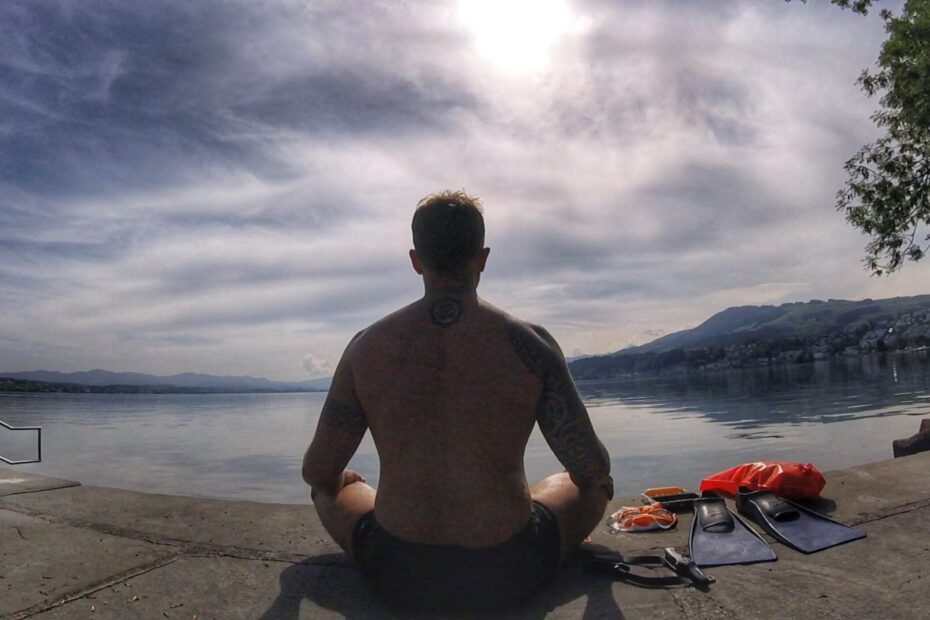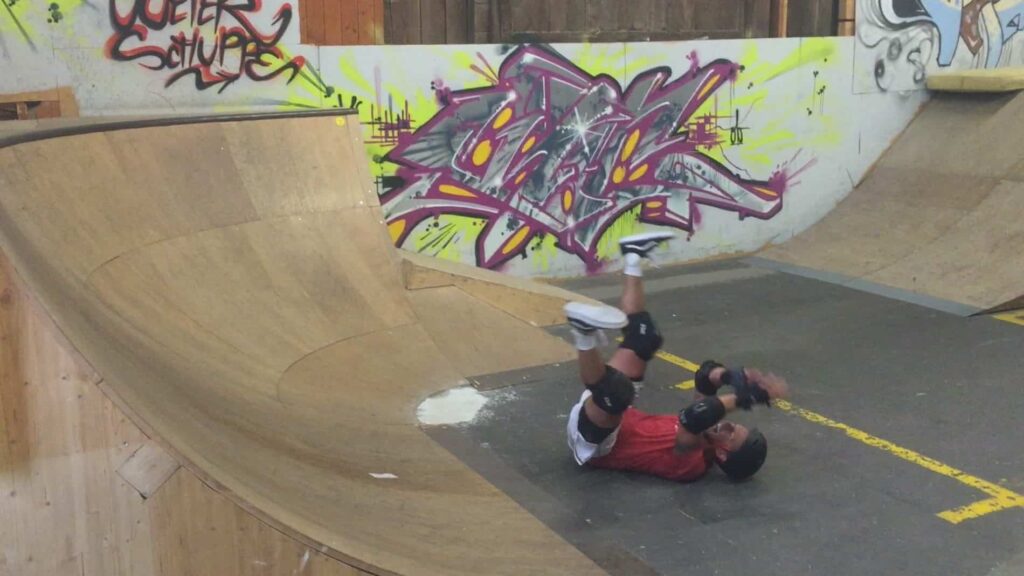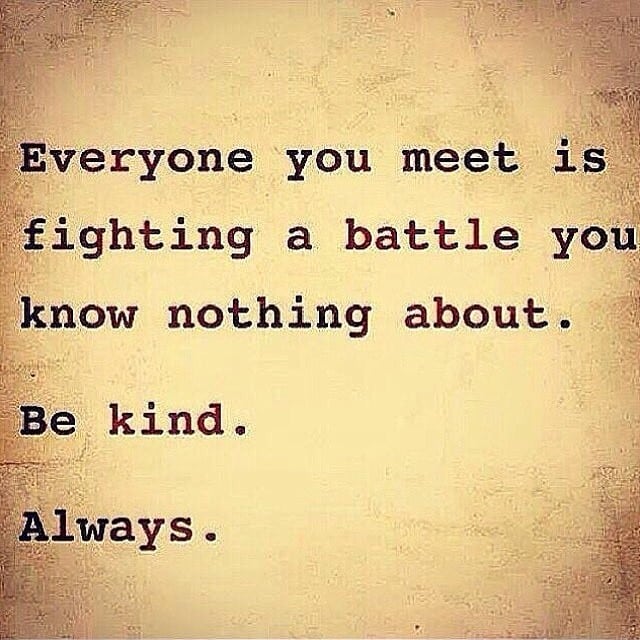Taking on those big challenges
Taking on challenging races and events is an incredibly powerful motivator. Maybe your challenge is a marathon, triathlon, SEALFIT Kokoro, GORUCK, or other crucible moonshot challenge. These pursuits provide direction, a sense of purpose, and daily motivation to train hard even when you don’t feel like it. They take us out of our comfort zone and offer something meaningful directly for ourselves at moments of juggling the demands of work, family, and the rest of life.
For many, committing to finishing a hard, physical challenge is the cornerstone of a transformation, a moment of healing and moving forward, or perhaps even a recovery from an illness, addiction, or other deeper life challenge. No doubt, there’s major value in signing up for a tough challenge, preparing for it, and then making it happen.
Where coaching often stops short
Coaching guidance typically focuses on all the hard work that goes into preparing you to thrive through all the adversities a tough event can throw at you. This is where smart strength and conditioning programming, effective mental training, and a solid nutrition and hydration approach comes into play. Absolutely critical components, which is why as coaches and athletes, we spend a tremendous amount of time and energy getting them dialed in. Let’s assume you nailed all of that and secured that finish. Now what?

Hit by the Blues Hammer
A common occurrence after experiencing a dream event is a period of post-event blues. Time lessens the impact, but during the moment, it’s a lousy time as an athlete, as that deep low may quickly and unexpectedly arrive after a soaring high. It’s unsettling, and for some, can even spin into a period of depression. It can be mentally and emotionally paralyzing, much like that of a break-up. And in a way, it is a break-up … you’ve ended the relationship you had with the version of you preparing for that event. The big day arrived, the mystery is gone, and now you’re left with what feels like a hole in your life.
If you’re going through a downtime after a big event, or you are training for an event and want to prepare your mind as much as possible, this article is for you. And if this article is for you, how about listening to a little Stevie Ray Vaughan or BB King while you read it? They knew exactly how to express what we’ve all felt at one time or another.
My first post-race blues experience
Getting personal, my first major athletic challenge was in 1996 … an Ironman Triathlon, which I signed up for as an overweight 20-something without a clue of the distances, training involved, etc. I was stuck and needed a change. I saw an Ironman finish as my ticket out – my path forward, from fat to fit, from lazy to driven. I endured a 10-month training grind, with countless overuse injuries, and ultimately finished that race, hobbling to the finish line in pain, but with no chance in hell of quitting.
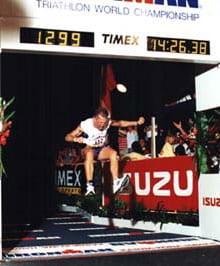
I felt a huge sense of accomplishment in the days immediately after the race. I celebrated, got a new tattoo, and then got hit with the hammer. At the peak of my joy, I fell into a hole of sadness and stagnation. Yep, the post-race blues hammer hit me hard. In my mind, my sense of purpose was suddenly gone. I didn’t feel like training, didn’t feel like reading about triathlon, didn’t feel like doing anything. While taking some recovery time is smart, completely stopping physical activity is not. Weeks passed and I was at a loss for why my spark was gone, why my motivation “done up and R-U-N-N-O-F-T,” and why a sport I had fallen in love with the past year, was suddenly the last thing I wanted anything to do with.
Frustrating, but normal
This is normal, but still super frustrating at the time you experience it. In the years since, I’d go one to see this occurrence time and time again, in myself, in those I’ve coached, and in my friends in endurance sports. The impact is often proportional to the magnitude of the event. If it’s a moonshot, a huge undertaking that means the world to you, the period of time after it is crucial. But even after a smaller event, it’s common to feel a bit knocked down and empty after it and may take some effort on your part to find your footing once again.
Dealing with Failure
Let’s get this one out of the way first. If you put yourself out there a lot, and really push your limits, you will experience failure at some point. Perhaps in a small way that you quickly bounce back from, or perhaps in a larger way that results in you not finishing an event. Maybe your ego is trashed. Perhaps you mismanaged hydration or nutrition, or you found out that you didn’t put in enough preparation or did so in the wrong way.

The why doesn’t matter though, because in the moment of suck, in the days after a DNF (did not finish) or otherwise poor performance, you feel it in its full darkness. Not only is there a hole in your life from not having the event to prepare for, you are also struggling with a result that didn’t meet your expectations.
Your ticket out is to keep moving. Get up and move. Maintain momentum, document your lessons learned, and step forward, out of the darkness. Read the triage section below for suggestions on how to create that momentum, and don’t forget, you are not an event performance. You are not a finishing time, a finisher’s medal, or a t-shirt. Events don’t define you.
You define yourself, especially in the gut-wrenching moments of struggle in life. In mountaineering, we say the mountain will always be there. Whether it’s a selection program or a race, in most cases it will still be there for you to return to and finish on your terms. I failed to summit the highest peak in South America nearly 20 years ago. I was really down after that expedition, but the mountain hasn’t gone anywhere and I know I’ll eventually go back and earn the view from the top!
Dealing with Success
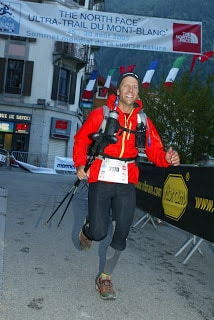
Oddly, it’s often after successful events that athletes hit their biggest lows. Speaking from my experience both as an athlete and coach, I’ve linked this to a sudden lack of mission.
Here’s why:
With failure, athletes tend to do one of two things: 1) re-define or undermine the original goal (often saying “I learned what I came here for and didn’t need to finish.”) or 2) have a new thirst for overcoming their failure. There can definitely be a low period, but people tend to sidestep it or get super fired-up about returning to take care of unfinished business.
With success though, it can sometimes just feel empty, with seemingly nothing to replace the massive space in life that the goal was taking up. For months and perhaps even years, you chased a dream. You finally achieved it. You’d expect to be on top of the world, but instead just feel empty. The buzz is gone, and contentment at achieving the mission isn’t enough of a fuel. This is a confusing low, but one that happens to many athletes. Sometimes it even turns into a desire to quit the sport you love, because you “got the t-shirt” and forgot the joy of the unknown when you were pursuing it.
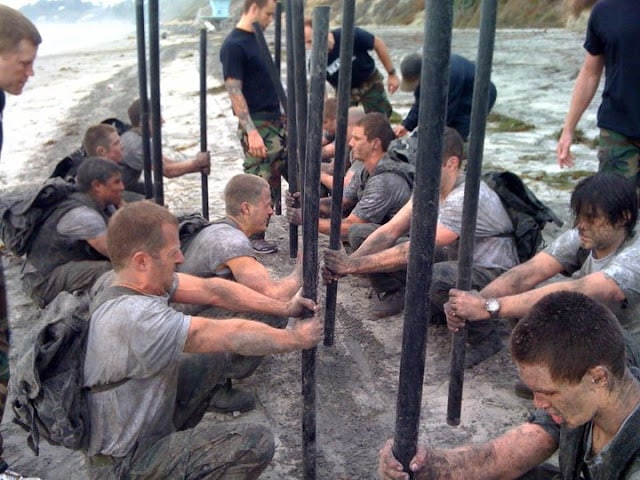
How do I come out of it and prevent it for the next time?
My overarching guidance is to know that it is a normal part of the process, part of the lifecycle of living life in the arena, of training and racing and being an athlete. Plan for it, expect it and be kind to yourself when it arrives.
If you are going through post-race or post-event blues or are interested in preventing it or lessening the impact, I advise you approach it in three stages: preventative care, triage and after-care. Here’s a deeper look:
Preventative Care
This is one of the most important investments you can make in your emotional management around peak races and events.
Ask yourself some questions about your “story” in the months before an event. I repeat “in the months before an event.”
- What does this event symbolize for me? Or does it symbolize anything? What have I mapped it to?
E.g. Does it symbolize that I have control over my life? That I’m faster than last year or that I’m faster than other people my age? Does it prove that I’m fulfilled and happy? Or more fulfilled and happier? That I’ll keep the weight off and stay healthy? Is it a symbol that I’m relevant? That my coworkers or team will respect me? Does it mean I’m someone my __ father, mother, spouse, daughter, son, etc. __ would be proud of?
- Is the event, or my desired performance at it, the only way for me to experience what I’ve mapped it to? In other words, in the absence of the event, are there still ways for me to experience the desired feeling or end-state?
- If the race or event isn’t the only way to experience what I’ve mapped the event to, what story or outcome would also serve me? What other ways could I experience feeling the desired way (young, healthy, vibrant, fast, smart, fulfilled, happy, whatever)? Are there things I can I put in place now (well before the race) to ensure that I continue to experience that which I’m seeking, even after the event?
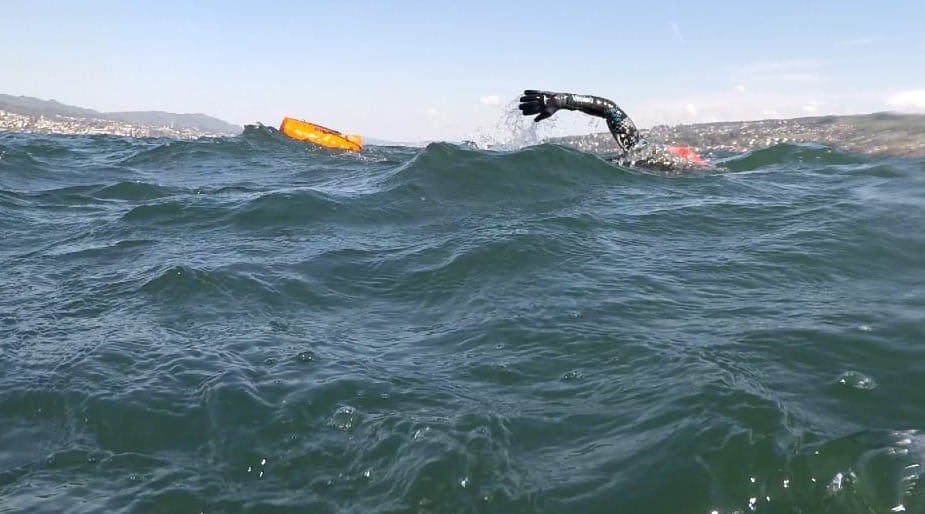
Often our events are about showing us that we have what is already inside us (courage, confidence, energy) and perhaps proving to ourselves again and again that we have this. Sometimes it helps to just remember that it’s all inside already and that the event doesn’t define who we are. This helps especially if you have to quit an event. Just do this as a thought exercise, and check-in on it throughout your training.
Select a follow-up event
Less on the philosophical level, but very effective: preselect your next event and sign-up for it early. It can even be an adventure instead of a race (like a bike tour or backpacking trip), a similar race, or a completely different sport. I always have a follow-up event in mind, often within 1-3 months of any major event I commit to. And sometimes those follow-up events take on more meaning than the original event.

In 2017, I was making a comeback in ultra-running and got sidelined with a broken toe before a big race, effectively killing a summer season of racing in the mountains. That’s exactly when the 2018 Epic Charity Challenge in Normandy was announced (10KM swim in the English Channel + 42KM ruck), so it took the place of my big event to pursue. The Normandy event would define an entirely new phase in my training and adventure life, full of marathon swims and extreme cold-water challenges, all planned in succession before the prior event was completed. Don’t underestimate this technique, it works, especially when life happens and change our original plans.
Triage
This is the moment when you feel the most down. It’s the moment where you don’t feel like leaving the sofa. It’s also the moment when it’s tempting to feel sorry for yourself. The solution doesn’t rest with Netflix-binging or winning a calorie consumption race. What you need is momentum. You’ve got to break out of the funk and the key in through MOVEMENT.
Instead, here are some ways to create momentum again.
- Direct your energy to other people. Volunteer for something, coach someone or teach a skill. This is the absolute best time to give back, to your sport, to your community, to those who supported you, to anyone who needs help with a skill you have.
- Learn something new. Pick a totally new sport for you (martial arts, archery, rock climbing, fly fishing, etc.). Dive into a new language or playing music for a few weeks. Master or re-master knot-tying or survival skills. Make some gear. Build something.
- Explore some yoga and mind training techniques.
- Got out of your age or social bracket … spend some extra with kids, those quite a bit older, or those in vastly different circumstances.
- Talk to someone, even if it’s not about how you’re feeling post-event. Just talk about anything. The simple act of going for a walk with a friend and talking is therapeutic. There’s no need to force it. Get out in nature and just let conversation show up and flow naturally.
- If you’re concerned that this post-event blues is persisting for too long or impacting your life in unhealthy ways, please consider talking to a qualified therapist and building up a small support team to help you through what you are experiencing.

Triage: Taking my Own Medicine
By the way, I ended up building a workbench after my first Ironman. That simple and terribly-built workbench got me out of my black hole and ultimately back to training and racing again. I built the first half of it using the method of “measure half-ass once, cut three times,” so for the years I used it, that bench wobbled and shook, but it did the job it was meant to do, literally and figuratively.
A couple decades later, I spent a summer after years of ultra-marathon racing by diving back into skateboarding. It hurt way less in my teens, but was a super effective tool in my 40s to create momentum and drive me through a rough patch.
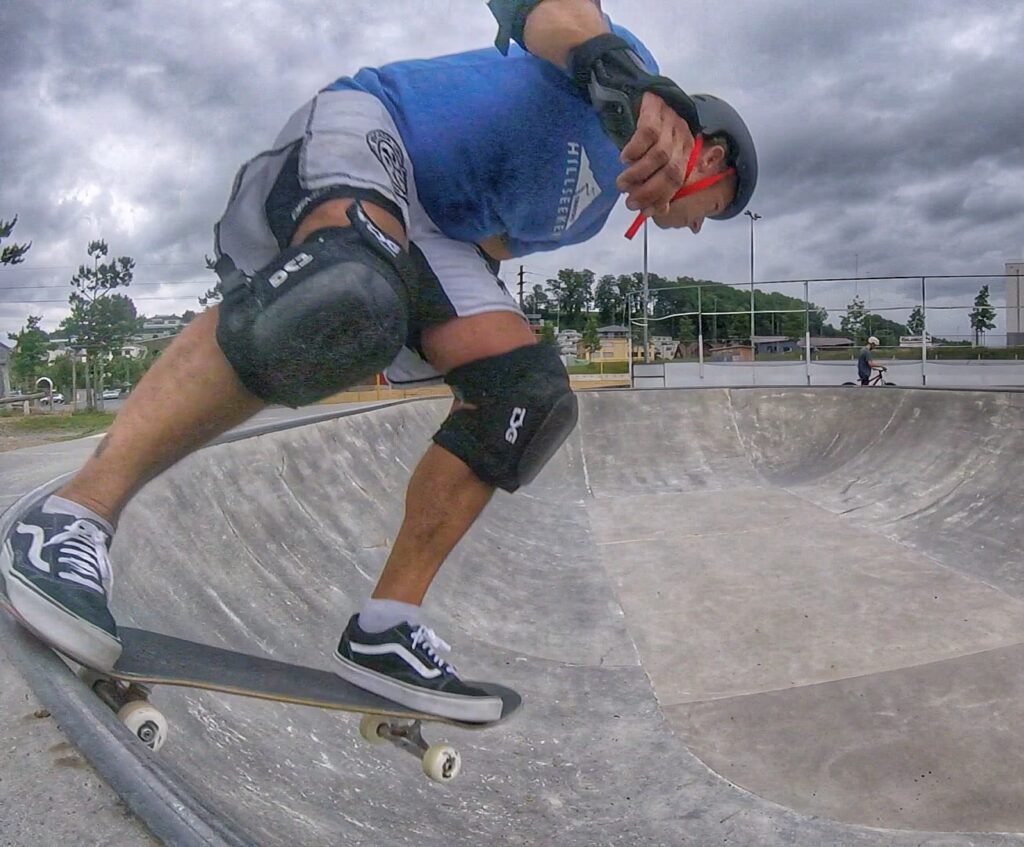
After-care
Once you’ve created momentum again and feel like you have a clear, refreshed mind, here are some after-care actions to consider:
- Review your preventative care questions on your “story.”
- Get coaching, or make sure you reach out to your coach. If you are a coach, then be there for your athlete at this time. Some of the most important moments of the coach-athlete relationship occur in the hours, days and weeks after a major event is completed. Good coaches will help guide you through a period of gratitude, reflection and ultimately refocusing.
- Ask yourself, what would the 80-year old you advise? Or be the proudest of?
- Debrief: Document your lessons learned. Think about how these lessons could help others who are pursuing the same event in the future. Engage in online or in-person communities to share your experience.
Get back in the arena, it’s where you belong
I’ll close this article sharing my favorite Teddy Roosevelt quote. If you were meant to live life in the arena, this message will resonate. Look at yourself in the mirror … embrace the dust, sweat and blood and get moving. Claim your place back in the arena and live the way that matters to you.
“It is not the critic who counts; not the man who points out how the strong man stumbles, or where the doer of deeds could have done them better. The credit belongs to the man who is actually in the arena, whose face is marred by dust and sweat and blood; who strives valiantly; who errs, who comes short again and again, because there is no effort without error and shortcoming; but who does actually strive to do the deeds; who knows great enthusiasms, the great devotions; who spends himself in a worthy cause; who at the best knows in the end the triumph of high achievement, and who at the worst, if he fails, at least fails while daring greatly, so that his place shall never be with those cold and timid souls who neither know victory nor defeat.”― Theodore Roosevelt
Wishing you the best,
Coach Jeff
